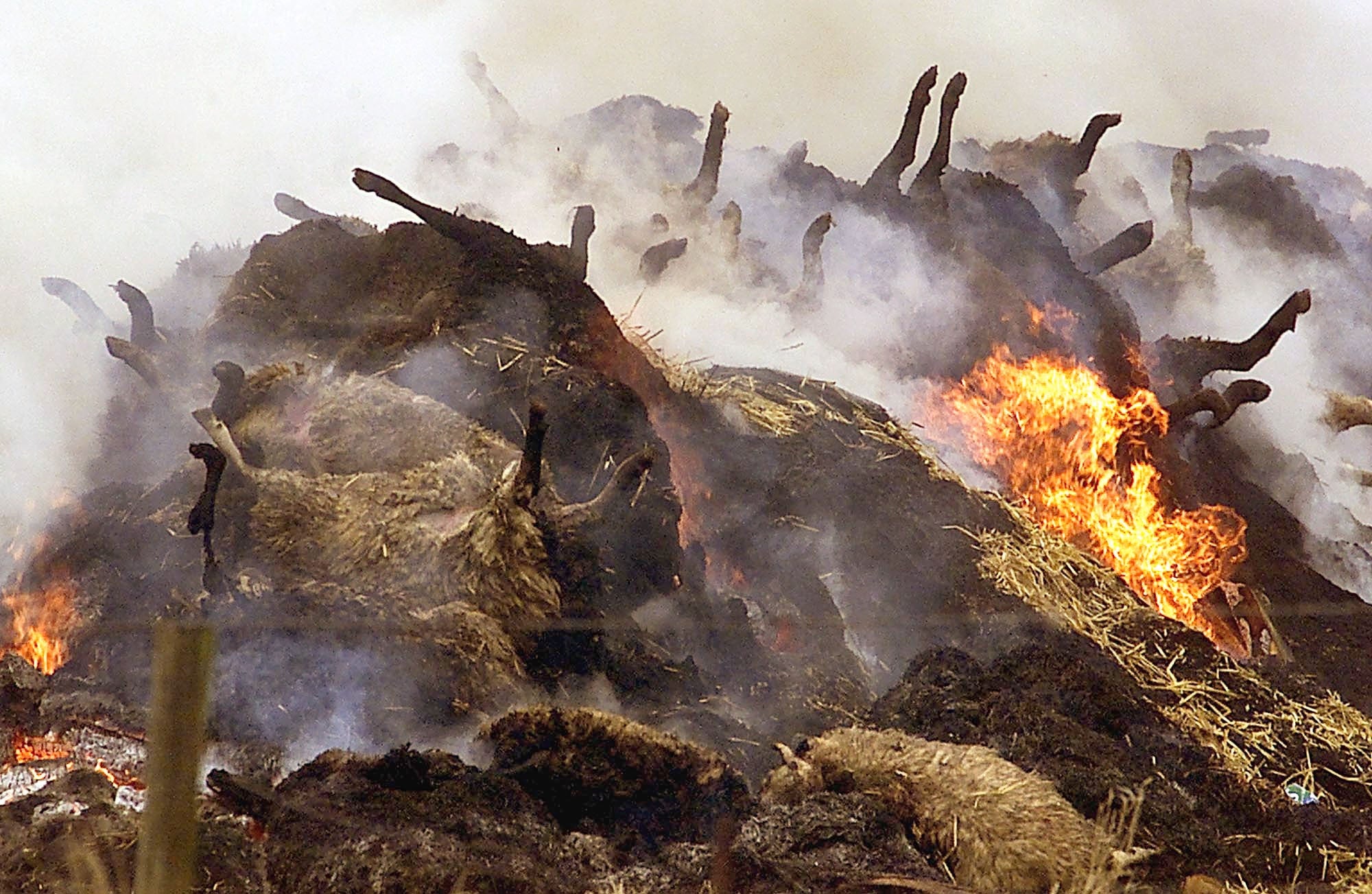Foot-and-mouth: Will Brexit leave us on the brink of another epidemic?
In 2001, the outbreak of foot-and-mouth disease brought the country to a standstill. As we look back at the horror of those events, Josh Gabbatiss wonders whether lax controls and less money once we leave the EU could pose a threat to British farming


When the 2001 foot-and-mouth outbreak struck, it changed the landscape of British farming forever. Across the nation, people saw images on their TV screens of mass graves and enormous bonfires full of scorched animal carcasses. By the end, 6 million animals had been slaughtered, and the outbreak had cost the nation more than £8bn.
In the aftermath, authorities immediately leapt into action to ensure the virus would not reach British shores again. A ban on feeding animals kitchen scraps and catering waste was brought in, and the government intensified efforts to monitor disease outbreaks around the world.
How The Independent covered this major news story in 2001
But with biosecurity warnings reemerging over the past few months thanks to Brexit, are we on the precipice of another outbreak? Industry experts and vets have warned that as the UK leaves Europe, it may be leaving its livestock vulnerable to infectious diseases.
In October, the House of Lords released a special report examining the potential threat posed to Britain by animal pests and diseases after exit day. Amid concerns about a breakdown in biosecurity measures, the Royal Society of Biology told the Lords that foot-and-mouth should be taken as a cautionary tale.
Experts also advised that while problems of this scale can seem a long way off, the threat of major livestock diseases like foot-and-mouth is never far away. One recent study identified nearly 50 pests and diseases in Europe that, if they ever spread to the UK, would cost more than £1bn to clean up.
Rumours continue to swirl about a flood of low-quality produce entering the country. And while the government scrambles to make deals, the Lords concluded their report with a warning that the “need to facilitate trade post-Brexit must not be allowed to compromise the UK’s biosecurity”.
Much of the UK’s current biosecurity strategy is currently based on intense cooperation with the EU, including a network of laboratories across Europe focused on tracking animal diseases. While the UK will undoubtedly lose some of its personnel after Brexit, there remains confidence that it will not lose its status as a leading player overnight.
“We have tremendous expertise in foot-and-mouth disease... That is not going to go away,” said Dr Simon Doherty of the British Veterinary Association. Nevertheless, biosecurity experts also warned that the success of these centres is currently reliant on EU money, and the government must supply alternative funds after this dries up.
Join our commenting forum
Join thought-provoking conversations, follow other Independent readers and see their replies
Comments